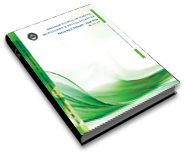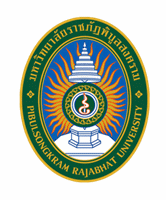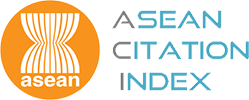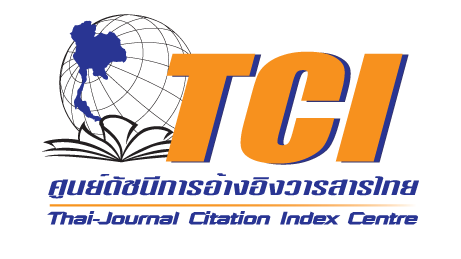การวิจัยและการศึกษาเพื่อการพัฒนาท้องถิ่น
Keywords:
วิทยาศาสตร์และมนุษยศาสตร์, ภูมิปัญญาท้องถิ่น, เทคโนโลยีนิเวศ, การพัฒนาที่ยั่งยืน, sciences and humanities, local wisdom, ecotechnology, sustainable developmentAbstract
บทคัดย่อ
ในประเทศตะวันตกระบบการวิจัยและการศึกษาได้พัฒนาขึ้นโดยนักปรัชญาและนักวิชาการผ่านกระบวนการเรียนรู้โดยการอ่าน (ฟัง) - คิด - เขียน (พูด) นักวิชาการได้สร้างสรรค์องค์ความรู้และจินตนาการที่นําไปสู่การตั้งกฎหรือหลักการ สมมุติฐานและทฤษฎีทางวิทยาศาสตร์ มนุษยศาสตร์และสังคมศาสตร์ ซึ่งเป็นฐานรากสําคัญของสังคมแห่งการเรียนรู้ที่นําไปสู่ความก้าวหน้าในการพัฒนาเศรษฐกิจและสังคมของโลกตะวันตก ในขณะเดียวกันกระบวนการเรียนการสอนของผู้คนในภูมิภาคตะวันออกรวมทั้งประเทศไทยส่วนใหญ่ได้พัฒนาขึ้นโดยพระสงฆ์ นักปรัชญาและผู้นําชุมชนซึ่งก่อให้เกิดภูมิปัญญาท้องถิ่น คติความเชื่อของชาวบ้านและความหลากหลายทางวัฒนธรรมที่สอดคล้องกลมกลืนกับระบบนิเวศ องค์ความรู้และ ภูมิปัญญาชาวบ้านได้สืบสานถ่ายทอดจากรุ่นสู่รุ่น ผ่านการสอนและประสบการณ์จากการปฏิบัติจริงเท่านั้น ทําให้ระบบการศึกษาและวิจัยของไทยในอดีตส่วนใหญ่จํากัดอยู่ในหมู่บัณฑิตและผู้เชี่ยวชาญพื้นบ้านจนกระทั่งประเทศไทยได้เริ่มแผนพัฒนาเศรษฐกิจและสังคมแห่งชาติในต้นทศวรรษ 1960 ตามแนวทางทุนนิยมของประเทศที่พัฒนาแล้วซึ่งยังผลให้ละเลยภูมิปัญญาท้องถิ่นดั้งเดิมของไทย และปราชญ์ชาวบ้าน ที่นําไปสู่การสูญเสียความหลากหลายทางชีวภาพและสิ่งแวดล้อมที่เป็นมิตรต่อชุมชนมากพอสมควร ดังนั้นจึงจําเป็นต้องปฏิรูประบบการศึกษาและการวิจัย โดยเฉพาะในวิทยาลัยและมหาวิทยาลัยในภูมิภาคโดยใช้แนวคิด “เทคโนโลยีนิเวศ” นั่นคือ การผสมผสานและบูรณาการวิทยาศาสตร์และเทคโนโลยีสมัยใหม่ให้สอดคล้องกับวิถีชีวิตและภูมิปัญญาท้องถิ่นดั้งเดิม เกี่ยวกับการอนุรักษ์และการใช้ประโยชน์จากทรัพยากรธรรมชาติ แนวทางดังกล่าวจะเป็นการเปิดพื้นที่ให้เป็นเวทีของทุกภาคส่วนเข้ามามีส่วนร่วมในการพัฒนาและการส่งเสริมสังคมแห่งการเรียนรู้ให้สอดคล้องกับแนวคิดปรัชญาของเศรษฐกิจพอเพียง ซึ่งจําเป็นสําหรับการพัฒนาที่ยั่งยืนของชุมชนท้องถิ่นและของประเทศไทยโดยรวม
คําสําคัญ : วิทยาศาสตร์และมนุษยศาสตร์, ภูมิปัญญาท้องถิ่น, เทคโนโลยีนิเวศ, การพัฒนาที่ยั่งยืน
Abstract
In western countries, research and education systems were developed by philosophers and academics through the process of learning by reading (listening)–thinking–writing (speaking).They have created a body of knowledge and imagination leading to the principles, hypotheses and theories of the sciences, humanities and social sciences. Thus, it has become a basis of learning society which is very important for making progress in economic and social development in the western world. Meanwhile, the process of teaching and learning of people in the Oriental region including Thailand was mostly developed by monks, philosophers and leaders of the local community leading to folklore, cultural diversity and traditional knowledge which were basically harmonious with local ecosystems. Such local wisdom has been passed down from generation to generation merely via informal teaching and practical experiences. Hence, Thai research and education systems were largely limited to pundits and local experts until the 1960s when Thailand launched the National Economic and Social Development Plan following the capitalist trends of developed countries. In doing so, we almost neglected our traditional knowledge and local philosophers. As a consequence, Thailand has lost biodiversity and a friendly environment to some extent. Therefore, we have to reform our research and education systems particularly in local universities and colleges by using the concept of “Ecotechnology”, i.e., integrating modern science and technology together with our livelihood and traditional knowledge concerning utilization and conservation of natural resources. This approach will provide a platform for all parties to participate in developing and promoting a learning society in association with ideas for a self-sufficient economy which is essential for sustainable development of local communities and of the country as a whole.
Keywords : sciences and humanities, local wisdom, ecotechnology, sustainable development
How to Cite
Issue
Section
License
Each article is copyrighted © by its author(s) and is published under license from the author(s).










